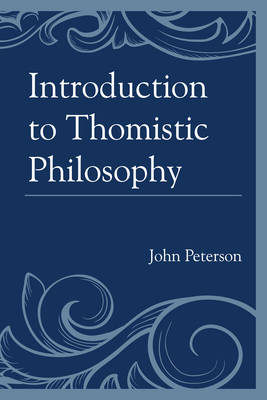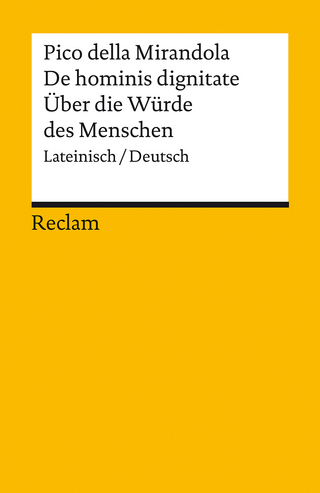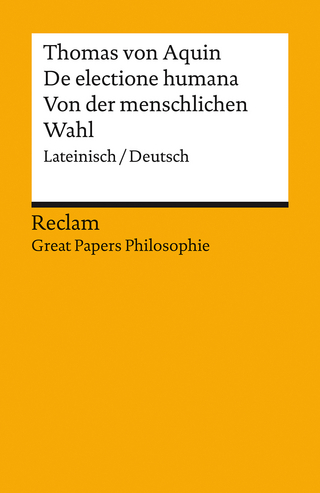
Introduction to Thomistic Philosophy
Seiten
2012
University Press of America (Verlag)
978-0-7618-5986-4 (ISBN)
University Press of America (Verlag)
978-0-7618-5986-4 (ISBN)
This book introduces readers to Thomistic philosophy through selected topics such as being, God, teleology, truth, persons and knowledge, ethics, and universals. Defending the basis of Aquinas’ natural-law ethics, Introduction to Thomistic Philosophy reveals the role of universalizability and the relation of right and good in his ethics.
This book introduces readers to Thomistic philosophy through selected topics such as being, God, teleology, truth, persons and knowledge, ethics, and universals. John Peterson discusses metaphysics and the essence-existence distinction and presents what he believes is Aquinas’ strongest theistic proof. He offers a new defense Aquinas’ idea of natural ends based on the distinction between immanent and transient change. Unveiling the complexity of Aquinas’ account of truth, Peterson shows the hierarchical levels of truth in the thought of St. Thomas. The book explains why Aquinas would reject Cartesian dualism as well as both materialism and epiphenomenalism on the body-mind issue. Defending the basis of Aquinas’ natural-law ethics, Introduction to Thomistic Philosophy reveals the role of universalizability and the relation of right and good in his ethics.
This book introduces readers to Thomistic philosophy through selected topics such as being, God, teleology, truth, persons and knowledge, ethics, and universals. John Peterson discusses metaphysics and the essence-existence distinction and presents what he believes is Aquinas’ strongest theistic proof. He offers a new defense Aquinas’ idea of natural ends based on the distinction between immanent and transient change. Unveiling the complexity of Aquinas’ account of truth, Peterson shows the hierarchical levels of truth in the thought of St. Thomas. The book explains why Aquinas would reject Cartesian dualism as well as both materialism and epiphenomenalism on the body-mind issue. Defending the basis of Aquinas’ natural-law ethics, Introduction to Thomistic Philosophy reveals the role of universalizability and the relation of right and good in his ethics.
John Peterson received his master’s degree from Boston College in 1959 and received his doctorate degree from Indiana University in 1965. He is the author of Realism and Logical Atomism (1976), Introduction to Scholastic Realism (1999), and Aquinas: A New Introduction (2008). His papers have appeared in The Review of Metaphysics, Ratio, Faith and Philosophy, International Philosophical Quarterly, and other notable journals.
Acknowledgements
1 Metaphysics and Being
2 God
3 Teleology
4 Truth, Knowledge and Goodness
5 Persons
6 Ethics
7 Universals
| Verlagsort | Lanham, MD |
|---|---|
| Sprache | englisch |
| Maße | 152 x 234 mm |
| Gewicht | 218 g |
| Themenwelt | Geisteswissenschaften ► Philosophie ► Philosophie des Mittelalters |
| ISBN-10 | 0-7618-5986-1 / 0761859861 |
| ISBN-13 | 978-0-7618-5986-4 / 9780761859864 |
| Zustand | Neuware |
| Haben Sie eine Frage zum Produkt? |
Mehr entdecken
aus dem Bereich
aus dem Bereich
Redewendungen aus der Natur
Buch | Hardcover (2024)
Regionalia Verlag
7,95 €
von der menschlichen Wahl
Buch | Softcover (2024)
Phillip Reclam (Verlag)
7,40 €


